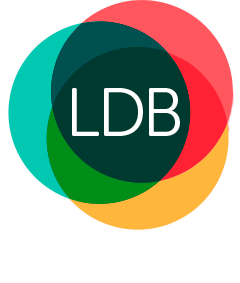Understanding FBT Exemptions for Electric Cars: Key Tax Considerations for Employers in 2024
November 17, 2023

In May 2023, LDB provided an update about the potential exemption for certain electric and hybrid cars from Fringe Benefits Tax (FBT).
Briefly, an employer will not pay FBT if it provides an electric car to an employee (or their associate – e.g., spouse) if it meets all the following conditions:
– The car is a zero or low emissions vehicle;
– The first time the car is both held and used is on or after 1 July 2022; and
– Luxury Car Tax (LCT) has never been payable on the importation or sale of the car.
In relation to the requirement that LCT has never been payable on the importation or sale of the car, to be eligible for the exemption, the value of the electric car must be below the LCT threshold for fuel efficient vehicles at the time it is first sold in a retail sale.
For the year ending 30 June 2024 (2024 income year), the LCT threshold for fuel efficient vehicles is $89,332. So far, so good. At this point you would be forgiven if you concluded that if a brand-new electric car costs less than $89,332 in the 2024 income year, that as an employer such an electric car provided to an employee will be exempt from FBT and there are no untoward income tax consequences.
Sleeper issue for Electric Vehicles under a Novated Lease with a value of more than $68,108
Whilst a brand-new electric car acquired or first leased (including under a novated lease) in the 2024 income year that costs less than $89,332 may well qualify for an FBT-exemption, there are sleeper income tax if the car costs more than what is called the “car limit” for income tax depreciation purposes. Deceptively, this sleeper issue can apply even if the car is leased by an employer, including under a novated lease.
Novated leases are a common mechanism under which an employee receives a car benefit from their employer. The sleeper issue is that where a car (including an electric vehicle) costs more than car limit, which is $68,108 for the 2024 income year, the Income Tax Assessment Act 1997 (Tax Act) seeks to restrict certain deductions that can be claimed in relation to that car. The Tax Act creates what is termed a legal fiction that a car costing more than the car limit at the time it is first leased, is deemed to have been purchased by the lessor. This deemed purchase for taxation purposes, means that an employer is denied a deduction for lease payments (including payments under a novated lease).
The way the legal fiction applies is that in place of a deduction for the actual lease payments, the employer is instead allowed to claim depreciation deductions restricted to the car limit and can claim a deduction for the implicit interest component of each “lease” payment. There are balancing adjustment event tax consequences that need to be dealt with by the employer when the novated lease ends (either because the employee’s employment ends whilst the lease is still in place, or the lease comes to its expiration whilst the employment is ongoing).
It is customary for an employer to make an adjustment to an employee’s salary sacrifice amount to reflect the cashflow impact of any lost tax deductions that arise where a car benefit has triggered the operation of this legal fiction, where at the commencement of the lease, the car is valued at more than the car limit.
Key takeaways
Given the complications this legal fiction can create, some employers have a policy whereby an employee is only allowed to salary package a car benefit where the car costs less than the car limit. In the context of an electric car that is potentially exempt from FBT, although the cost to qualify for the FBT exemption is less than $89,332 for the 2024 income year, to ensure that other income tax complications do not arise, it may be prudent to ensure that the electric car also costs less than car limit ($68,108 for the 2024 income year).
Before allowing an employee to receive an electric car that is potentially exempt from FBT, call LDB on (03) 9875 2900 to speak to one of our tax specialists, to ensure that all the tax-related consequences (FBT, income tax and GST) have been properly understood and addressed.
